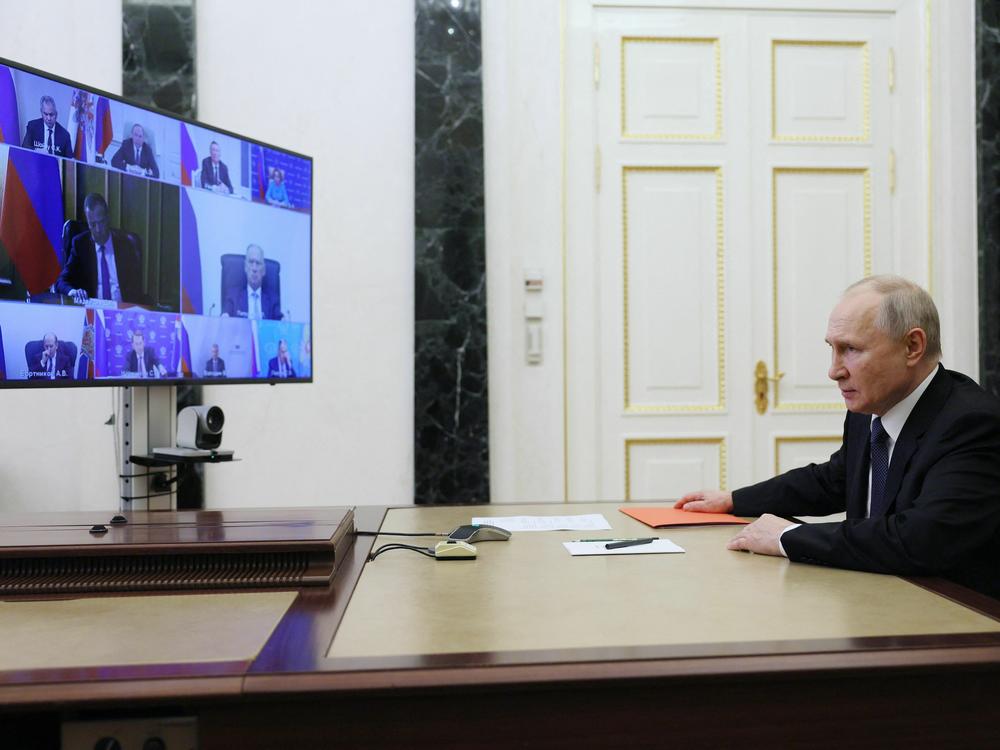Section Branding
Header Content
Putin met Wagner leader Prigozhin days after failed uprising
Primary Content
Russian President Vladimir Putin hosted Wagner chief Yevgeny Prigozhin and nearly three dozen of his mercenary commanders for talks in Moscow late last month — injecting new questions over the future of the mercenary force following a failed uprising against Russia's military leadership.
"The meeting took place in the Kremlin on June 29th and lasted almost three hours," Kremlin spokesman Dmitry Peskov told reporters in his daily call with them.
The president "invited 35 men — all the unit commanders and the leadership of the company, including Prigozhin," Peskov added.
During the meeting, President Putin "gave his assessment" of the rebellion, Peskov continued.
In turn, the spokesman said, Wagner commanders explained their reasons for the rebellion while also assuring the Kremlin leader they remained loyal and would continue to fight for Russia.
In what capacity remains unclear.
In the wake of the rebellion, Putin has presented the failed uprising as a victory for law and order against the Wagner threat — and suggested state investigators look closely at the millions of dollars in state funds Prigozhin has received over the years.
State media has carried coverage of police raids on Prigozhin's grand Saint Petersburg residence with relish.
The Kremlin leader has also touted his own role in an amnesty deal that allowed Prigozhin and his fighters exile in neighboring Belarus — saying it prevented more bloodshed.
However, the terms of that deal were already in doubt after the leader of Belarus told reporters last week that Prigozhin was back in Russia and the Wagner fighters had yet to relocate to his country as initially agreed.
The renewed focus on Wagner's future came as a top Russian general — whose removal from power was a key demand of the rebellion — resurfaced back at his post.
The Chief of General Staff Valery Gerasimov hadn't been seen in public since the June 24 uprising — when Wagner mercenaries seized the southern city of Rostov on Don and then marched on the capital Moscow in a "march for justice" against the Kremlin's top brass.
Yet a video released by the Defense Ministry Monday made clear that Gerasimov remains in his post — and very much in charge of Russia's so-called "Special Military Operation" in Ukraine.
The video showed Gerasimov giving orders and overseeing airstrikes against enemy targets in Ukraine.
Copyright 2023 NPR. To see more, visit https://www.npr.org.

